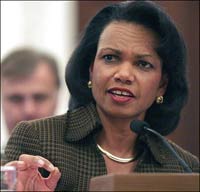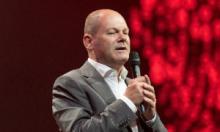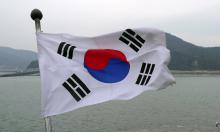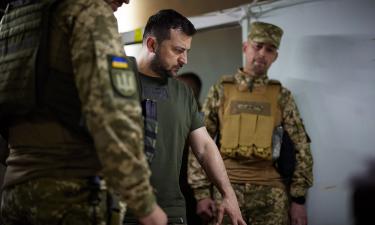U.S. and Iran return to public diplomacy with enormous stakes on the table
Iran and the United States resume public diplomacy Monday for the first time in more than a quarter century. The meeting in Baghdad between ambassadors on security in Iraq could produce a chapter in world history for its success or a footnote for its failure.

U.S. Ambassador Ryan Crocker was to represent Washington. Iranian Ambassador Hassan Kazemi Qomi will speak for Iran.
Crocker said an Iraqi government official would be present. Iran said it would be Iraq's National Security Adviser Mowaffak al-Rubaie. An Iraqi government official said it would be Prime Minister Nouri al-Maliki and that the talks would take place at al-Maliki's residence.
Monday's talks were to have a pinpoint focus: What Washington and Tehran - separately or together - could do to contain the sectarian conflagration in Iraq.
The positions - going in - are straightforward.
Washington wants Tehran to butt out - to stop arming, financing and training militants, particularly Shiite militias that are fighting American and Iraqi troops.
Tehran wants Washington out of Iraq, period.
But much more encumbers the narrow agenda - primarily Iran's nuclear program and more than a quarter-century of diplomatic estrangement after the 1979 Islamic revolution in Iran.
Further, the Iranian Shiite theocracy fears the Bush administration harbors plans for regime change in Tehran and could act on those desires as it did against Saddam Hussein in Iraq.
Washington and its Sunni Arab allies, on their side, are deeply unnerved by growing Iranian influence in the Middle East and the spread of increasingly radical Islam.
Compounding all that is Iran's open hostility to Israel.
Those issues, combined, are the nut of the larger problem and what make this opening of the U.S.-Iranian minuet both so important and so interesting.
Will this first meeting, as the Iraqis openly hope and as the Iranians and Americans may quietly aspire, be sufficiently cordial and productive that a second meeting becomes possible?
Should that happen, will a future dialogue involve higher-level officials - perhaps U.S. Secretary of State Condoleezza Rice and Iranian Foreign Minister Manouchehr Mottaki.
On Saturday, Crocker was circumspect when asked about prospects for further meetings.
"It's going to start with one meeting and see how it goes," Crocker said. "We're coming prepared to talk about Iraq."
Mottaki set out a hard-line opening position.
"The two sides can be hopeful about the outcome of the negotiations, if America develops a realistic view toward Monday's talks, admits its wrong policies in Iraq, decides to change them and accepts its responsibilities," he said in Tehran.
A political aide to Iraqi Prime Minister Nouri al-Maliki told The Associated Press that Iraq hoped to play a mediator's role in easing tensions between the Americans and Iranians, which Iraqi officials have routinely said are being played out in Iraq.
The adviser, who spoke on condition of anonymity because he was not authorized to speak on the matter, said Iraq would remain neutral as regards its position in the disputes.
"But we want to try to close the gap, to be partners in the dialogue," the official said. "It is time to look forward, not backward."
Many small issues could cloud the talks before they begin. There were U.S. Navy exercises in the Persian Gulf last week and tough talk from U.S. President George W. Bush about new U.N. penalties against Tehran over its nuclear program. The United States says Tehran is trying to build a bomb. Iran says it needs nuclear technology for energy production.
Further complicating the talks, Iran said Saturday it had uncovered spy rings organized by the United States and its Western allies.
Iran accuses the U.S. of improperly seizing five Iranians in Iraq this spring. The U.S. military is holding the five. Iran says they are diplomats; Washington contends they are intelligence agents.
The U.S. also has complained about the detention or arrest of several Iranian-Americans in Iran in recent weeks. State Department spokesman Tom Casey said that issue is not on the U.S. agenda for Monday.
Regardless, the Baghdad talks are the first of their kind and a small sign that Washington thinks rapprochement is possible after nearly three decades of animosity. Iran, angry over the blunt show of U.S. military power off its coast, almost refused to come.
Subscribe to Pravda.Ru Telegram channel, Facebook, RSS!



